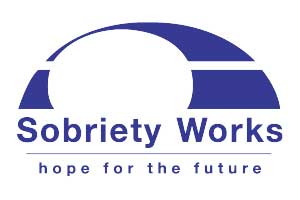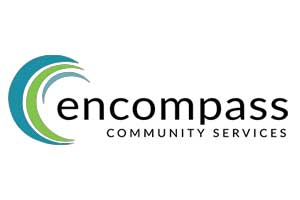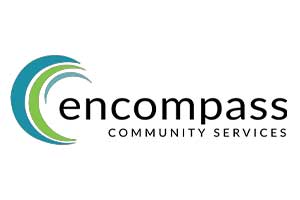Skip To Rehab Listing
That is the reason the Santa Cruz area has 31 drug and alcohol rehab programs accessible to local residents who struggle with drug and/or alcohol abuse. These centers serve the area's population of 92,697 regardless of age or situations in order to make effective treatment available to anyone who needs it.
Drug and Alcohol Treatment Service Settings and Methods
Santa Cruz area residents who face substance abuse issues can choose from a variety of recovery settings based upon factors such as their location and specialized needs.
Recovery settings include the following: outpatient substance abuse counseling, long term drug rehab programs, inpatient addiction treatment programs, short term rehabs, inpatient detox centers.
Clients can also choose from a number of treatment approaches designed to offer effective support for their needs: trauma-related counseling, individual psychotherapy, 12-step facilitation approach, anger management, matrix model, couple/family therapy.
Specialized Services for Addiction Recovery
Drug and alcohol addiction is not necessarily one-size-fits-all, so treatment approaches should also be individualized. That is why alcohol and drug rehab facilities in the Santa Cruz area offer various specialized programs designed to deliver a tailored approach to treatment for patients. These special programs include the following: treatment for spanish-speaking clients, substance abuse education, programs for the hearing impaired, clients referred from the court/judicial system, aftercare/continuing care, social skills development.
Recovery Payment Options
Clients often put off recovery because of concerns about money. However, drug and alcohol rehab programs make a variety of financing options available to clients in order to address their economic needs and increase opportunities for treatment. Some of these alternatives are listed here: private pay, private medical insurance, military insurance, payment assistance, other state funds, access to recovery (atr) voucher.
Alcohol and drug addiction recovery is available for Santa Cruz, California residents via a great deal of different programs, methods, and payment alternatives that put sustained recovery within reach.
Commonly Asked Questions about Addiction and Treatment
How do I repair relationships damaged by my drug and alcohol abuse?
"Repairing relationships damaged by substance abuse is a process that takes time, effort, and a sincere commitment to change. Here are some steps to consider:
Achieve Sobriety: The first step in repairing relationships is to focus on your recovery. Demonstrating commitment to sobriety shows your loved ones that you are serious about making a change.
Acknowledge the Damage: Be open and honest about the harm your substance abuse has caused to your relationships. Acknowledging the problem is the first step towards making amends.
Apologize Sincerely: Offer a sincere and heartfelt apology. It's essential to take responsibility for your actions and the pain they've caused, without making excuses.
Make Amends: Making amends goes beyond apologizing. It involves taking action to correct past wrongs where possible, whether that means repaying debts, resolving past disputes, or simply making a commitment to behave differently in the future.
Open Communication: Maintain open, honest, and regular communication with your loved ones. Be open to their feelings and feedback, even if it's tough to hear.
Be Patient: Healing takes time. Your loved ones may not be ready to immediately forgive or trust you again. Respect their feelings and give them the time they need to heal.
Seek Professional Help: Family or relationship therapy can provide a safe and structured environment to address issues, improve communication, and begin the process of rebuilding trust.
Maintain Consistency: One of the most crucial steps in repairing relationships is consistently demonstrating your commitment to your recovery and to positive change. This consistency helps to rebuild trust over time.
Support Their Healing: Understand that your addiction may have caused significant pain and trauma to your loved ones. Support them in their own process of healing, which may include their own therapy or participation in support groups.
Rebuild Trust: Broken trust is often the most challenging aspect of a relationship to mend. Proving through actions over time that you're committed to your sobriety and to being reliable and truthful can gradually rebuild trust.
How long does it take for the treatment of drug addiction?
"The duration of treatment for drug addiction can vary significantly depending on several factors, including the individual's unique needs, the severity and type of addiction, and the chosen treatment approach. There is no universally prescribed timeline for addiction treatment, as each person's journey to recovery is different. However, some general timeframes can be considered when discussing drug addiction treatment:
Detoxification: The initial detoxification process, during which the body clears itself of drugs and toxins, can range from a few days to several weeks, depending on the substance involved and the individual's physiological response.
Inpatient or residential treatment: Inpatient or residential treatment programs, which provide intensive, structured care in a controlled environment, typically last between 28 days and 90 days. However, some individuals may require extended stays of six months or longer, depending on their progress and specific needs.
Outpatient treatment: Outpatient treatment programs, which offer therapy and support while allowing individuals to continue living at home, can vary in duration and intensity. Some programs may last for several weeks or months, while others may continue for a year or more, with sessions becoming less frequent over time as the individual progresses in their recovery.
Aftercare and ongoing support: Recovery from addiction is a lifelong process, and ongoing aftercare and support are crucial for maintaining long-term sobriety. Aftercare may include continuing therapy, attending support group meetings, or participating in sober living communities. The duration of aftercare and ongoing support can vary based on individual needs and may continue indefinitely.
Research suggests that longer durations of treatment are generally more effective in promoting lasting recovery. The National Institute on Drug Abuse (NIDA) recommends a minimum of 90 days of treatment for most individuals, as shorter durations have been associated with higher relapse rates. However, it is essential to recognize that each person's path to recovery is unique, and the most effective treatment plans are tailored to their specific needs, goals, and circumstances."
What are the different ways to pay for addiction treatment?
"Paying for addiction treatment can be a significant concern for individuals and families seeking help. However, there are various options available to help cover the costs, making it more accessible to those in need. Here are some common ways to pay for addiction treatment:
- Insurance: Many health insurance plans, including those offered through the Affordable Care Act (ACA) or provided by employers, cover addiction treatment services to some extent. Coverage may include detoxification, inpatient or outpatient treatment, counseling, and medication-assisted treatment. It is essential to review your insurance policy or consult with your insurance provider to understand the specifics of your coverage, any copayments, and deductibles that may apply.
- Medicaid and Medicare: Both Medicaid and Medicare, government-funded health insurance programs, provide coverage for addiction treatment services for eligible individuals. Medicaid coverage varies by state, so it is crucial to check the guidelines and benefits for the state you reside in. Medicare covers addiction treatment under Part A (hospital services), Part B (outpatient care), and Part D (prescription medications).
- Private pay: Some individuals may choose to pay for addiction treatment services out of pocket, either because they do not have insurance coverage or prefer not to use their insurance for privacy reasons. Many treatment facilities offer sliding scale fees, payment plans, or discounts to make treatment more affordable for private pay clients.
- State-funded treatment programs: In many states, there are publicly funded addiction treatment programs that offer services to residents at low or no cost. These programs often prioritize individuals with low income, no insurance, or severe addiction issues. Availability and eligibility criteria may vary by state, so it is important to research and contact your state's department of health and human services for more information.
- Employee Assistance Programs (EAPs): Some employers offer Employee Assistance Programs, which provide confidential support, resources, and referrals for employees dealing with personal issues, including addiction. EAPs may cover the cost of short-term counseling or help connect employees with appropriate addiction treatment services.
- Scholarships and grants: Some treatment facilities, non-profit organizations, or advocacy groups may offer scholarships or grants to help cover the cost of addiction treatment for individuals in need. These opportunities may be limited and often require an application process, but they can be a valuable source of financial assistance.
- Crowdfunding and fundraising: Some individuals turn to crowdfunding platforms or organize fundraising events to help cover the costs of addiction treatment. This option allows friends, family, and community members to contribute and support the individual's journey to recovery.
- Loans: Personal loans or healthcare-specific loans can be used to finance addiction treatment. While taking on debt may not be ideal, it is an option to consider if other funding sources are not available.
"
















